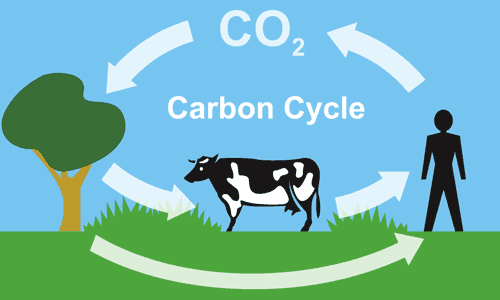 Arguments
Arguments
 Software
Software
 Resources
Comments
Resources
Comments
 The Consensus Project
The Consensus Project
 Translations
Translations
 About
Support
About
Support


Latest Posts
- Skeptical Science New Research for Week #6 2026
- The future of NCAR remains highly uncertain
- Fact brief - Can solar projects improve biodiversity?
- How the polar vortex and warm ocean intensified a major US winter storm
- 2026 SkS Weekly Climate Change & Global Warming News Roundup #05
- Help needed to get translations prepared for our website relaunch!
- Skeptical Science New Research for Week #5 2026
- Climate Variability Emerges as Both Risk and Opportunity for the Global Energy Transition
- Fact brief - Are solar projects hurting farmers and rural communities?
- Winter 2025-26 (finally) hits the U.S. with a vengeance
- 2026 SkS Weekly Climate Change & Global Warming News Roundup #04
- Skeptical Science New Research for Week #4 2026
- WMO confirms 2025 was one of warmest years on record
- Fact brief - Do solar panels release more emissions than burning fossil fuels?
- Keep it in the ground?
- 2026 SkS Weekly Climate Change & Global Warming News Roundup #03
- Skeptical Science New Research for Week #3 2026
- Climate Adam - Will 2026 Be The Hottest Year Ever Recorded?
- Fact brief - Does clearing trees for solar panels release more CO2 than the solar panels would prevent?
- Where things stand on climate change in 2026
- 2026 SkS Weekly Climate Change & Global Warming News Roundup #02
- Skeptical Science New Research for Week #2 2026
- UK renewables enjoy record year in 2025 – but gas power still rises
- Six climate stories that inspired us in 2025
- How to steer EVs towards the road of ‘mass adoption’
- 2026 SkS Weekly Climate Change & Global Warming News Roundup #01
- Skeptical Science New Research for Week #1 2026
- 2025 in review - busy in the boiler room
- Direct Air Capture
- IEA: Declining coal demand in China set to outweigh Trump’s pro-coal policies
Archived Rebuttal
This is the archived Basic rebuttal to the climate myth "Breathing contributes to CO2 buildup". Click here to view the latest rebuttal.
What the science says...
| By breathing out, we are simply returning to the air the same CO2 that was there to begin with. |
The very first time you learned about carbon dioxide was probably in grade school: We breathe in oxygen and breathe out carbon dioxide. Any eight-year-old can rattle off this fact.
It should come as no surprise that, when confronted with the challenge of reducing our carbon emissions from the burning of fossil fuels, some people angrily proclaim, "Why should we bother? Even breathing out creates carbon emissions!"
This statement fails to take into account the other half of the carbon cycle. As you also learned in grade school, plants are the opposite to animals in this respect: Through photosynthesis, they take in carbon dioxide and release oxygen, in a chemical equation opposite to the one above. (They also perform some respiration, because they need to eat as well, but it is outweighed by the photosynthesis.) The carbon they collect from the CO2 in the air forms their tissues - roots, stems, leaves, and fruit.
These tissues form the base of the food chain, as they are eaten by animals, which are eaten by other animals, and so on. As humans, we are part of this food chain. All the carbon in our body comes either directly or indirectly from plants, which took it out of the air only recently.

Therefore, when we breathe out, all the carbon dioxide we exhale has already been accounted for. We are simply returning to the air the same carbon that was there to begin with. Remember, it's a carbon cycle, not a straight line - and a good thing, too!
Updated on 2010-09-26 by climatesight.
THE ESCALATOR

(free to republish)
























































